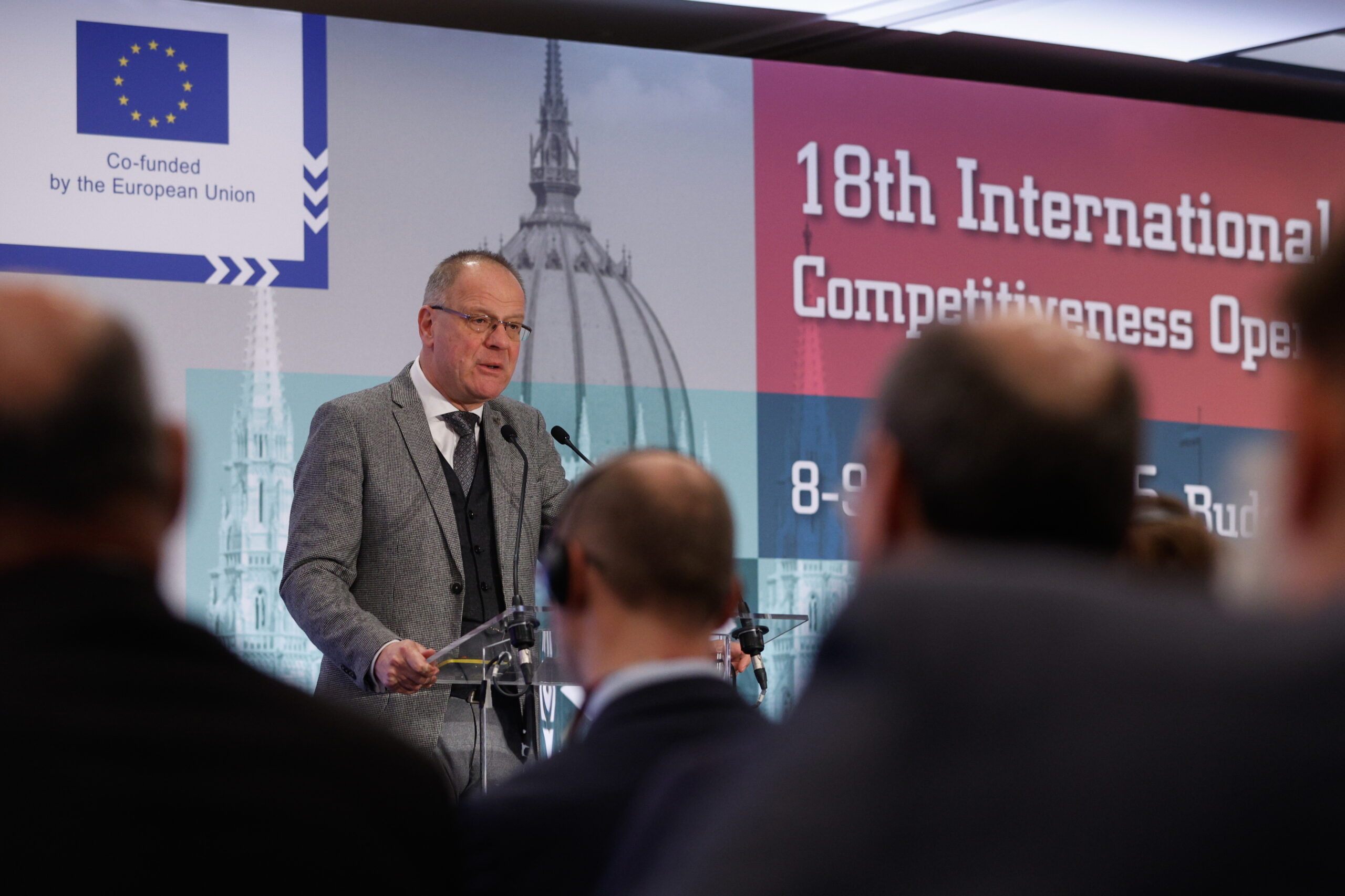
To solve the problem of the decline in competitiveness, he believes that "a fundamental change in mindset" is essential.Continue reading

Hungary is not wasting EU funds, but investing them in the future competitiveness of the European Union, the Minister of Public Administration and Regional Development said on Tuesday in Budapest at the 18th International Conference on Competitiveness Operational Programs.
Tibor Navracsics recalled that in the 2014-2020 financial period, Hungary was at the forefront in the use of EU funds and in the current period, even in much more difficult circumstances, it is still at the top of the field. In his opening speech, the minister stressed that Hungary values EU funds. “It is very painful that to this day we still have to face occasional suspensions of three operational programs,” he noted.
With these suspensions, the European Union is not only depriving Hungarian entrepreneurs of new EU funds and the Hungarian economy of new investment opportunities, but is also depriving itself of strengthening its own competitiveness,
he stated.
The competitiveness of the European Union is worth as much as the competitiveness of the weakest performing Member State; if any Member State can strengthen its competitiveness, the competitiveness of the European Union will also increase, he pointed out.

Minister Tibor Navracsics at the conference. Photo: MTI/Kocsis Zoltán
The minister said that in a broader sense, there was plenty to do in almost all sectors of society and the economy. EU Member States have generally lagged behind for decades in investing to improve the quality of the human factor. Education systems in Europe are in crisis, and EU students regularly lag behind in competency tests compared to Asian and sometimes African students, he argued.
He added that
many South American and East Asian countries are investing much more in modernizing education than EU countries, and the same is true of the resources spent on culture.
In this context, he recounted that in 2023, Veszprém and the Lake Balaton region was the European Capital of Culture, and the successful series of programs showed that culture can become an economic factor, and that investment in culture is a key factor in the strength and competitiveness of communities.
Mr. Navracsics said that in the field of competitiveness, the Hungarian economy would not be able to carry out many investments, modernization, or innovation without EU funding.
The Central European countries are the driving force behind the competitiveness indicators of the European Union, and the region’s economic growth is one of the decisive components of the EU’s economic growth; if the Central European economies weaken, the EU as a whole weakens,
he emphasized.
In the context of the mid-term review of the current EU financial period, the minister said that under the Economic Development and Innovation Operational Program (GINOP) for competitiveness, some 7,600 companies have so far received 315 billion forints (770 million euros) in support for the development of small and medium-sized enterprises, of which 5,000 had completed their projects by the end of March this year.
By March, 155 small and medium-sized enterprises engaged in research, development, and innovation had received support. In the field of employment and vocational training, almost 40,000 workers have benefited from labor market adaptability support. The Youth Guarantee Program supported 9,000 unemployed young adults, 7,500 of whom were disadvantaged, and more than 4,000 disadvantaged young people with good school results.
EU funds are essential for Hungary; if the country is more competitive, the European Union will also become more competitive, making it easier to compete in the global economy, he stressed.
Via MTI, Featured photo via Pixabay